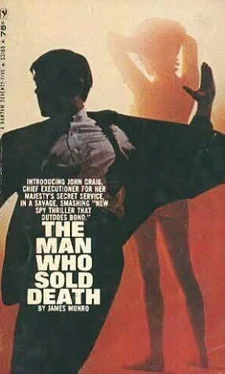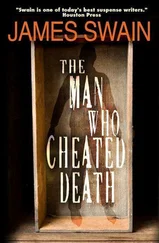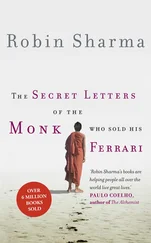James Munro - The man who sold death
Здесь есть возможность читать онлайн «James Munro - The man who sold death» весь текст электронной книги совершенно бесплатно (целиком полную версию без сокращений). В некоторых случаях можно слушать аудио, скачать через торрент в формате fb2 и присутствует краткое содержание. Жанр: Шпионский детектив, на английском языке. Описание произведения, (предисловие) а так же отзывы посетителей доступны на портале библиотеки ЛибКат.
- Название:The man who sold death
- Автор:
- Жанр:
- Год:неизвестен
- ISBN:нет данных
- Рейтинг книги:3 / 5. Голосов: 1
-
Избранное:Добавить в избранное
- Отзывы:
-
Ваша оценка:
- 60
- 1
- 2
- 3
- 4
- 5
The man who sold death: краткое содержание, описание и аннотация
Предлагаем к чтению аннотацию, описание, краткое содержание или предисловие (зависит от того, что написал сам автор книги «The man who sold death»). Если вы не нашли необходимую информацию о книге — напишите в комментариях, мы постараемся отыскать её.
The man who sold death — читать онлайн бесплатно полную книгу (весь текст) целиком
Ниже представлен текст книги, разбитый по страницам. Система сохранения места последней прочитанной страницы, позволяет с удобством читать онлайн бесплатно книгу «The man who sold death», без необходимости каждый раз заново искать на чём Вы остановились. Поставьте закладку, и сможете в любой момент перейти на страницу, на которой закончили чтение.
Интервал:
Закладка:
Rutter went to a hotel, a good one, and for the first time he felt relaxed enough to phone down for a drink. He asked for Scotch, and specified the brand. When the knock on the door came, however, he put the Colt in his coat pocket and was well away from the line of the door when he called "Come in." It was the waiter. He poured out Rutter's drink and palmed his tip with professional deftness, but Rutter waited until the door had closed before he picked up his glass, and sipped. It was good Scotch. Very good.
The waiter opened the door again, and for a fraction of a second Rutter saw him, reflected in the mirror. This time he wasn't carrying a tray. He held in his hand a small revolver with an oddly extended barrel. He shot Rutter twice, in the back of the neck, but once would have been enough. The two shots made no noise. No noise at all.
CHAPTER 6
Craig found it hard to fill in his days. In his role of incorporated accountant on a business trip, it was necessary to stay out of the Rowena a great deal, and necessary also to avoid conspicuousness, the attention of policemen, the curiosity of reporters. For the most part he bought clothes, visited picture galleries, and worried about the ten thousand pounds locked in the suitcase in his hotel bedroom. His plans for his future safety had been made years before, but it was necessary to wait before he moved, until even his enemies were satisfied that he was dead, and he could start to live again. In the meantime he looked at pictures. All he had to do was stare, and let his mind drift. It was in the National Gallery that he first thought of finding and killing the man who had planned the planting of the bomb.
For six years he had been planning, negotiating, arranging; worrying about contracts and ports of delivery, forcing himself to look for trade between North Africa and France so that the men who hunted him now might not suspect, parading Sir Geoffrey in public on every possible occasion to show how unspottedly pure the Rose Line was. Six years had been enough. He'd all the money he needed. He could go anywhere, be anybody, so long as they thought that he was dead. And until the inquest had been held they wouldn't be absolutely sure: and so he drifted, tightening his mind and body to action only when he went for his lessons with Hakagawa.
Then, in the Gallery, he saw the landscape, Rubens's "Chateau de Steen." In the foreground is a hunter with a long-barreled gun. Craig saw at once how right that hunter was; it was obvious in the way he moved, the way he handled the gun and used his cover. As he looked at the tiny figure, the whole picture made sense. A man who was hunting-he made sense too. Kilhng for food, or because somebody was trying to kill him. Either way he had no choice, and to Craig there was a passion in such killing that nothing else had ever supplied. It would be difficult to find out for certain who had planted the bomb, but it might not be impossible-and he knew very well who had ordered its use. He let his mind drift again, back to memories of the St. Pauli district in Hamburg, and his meetings with the man who had first got him into gun-ranning, a man called Lange.
Lange had fought in Greece too, on the other side. He had known all about Craig since 1943, and for a brief while they worked together in Tangier, when Craig had turned to smuggling. Cigarettes. Nylons. Batteries. Tires. Almost everything was in short supply then; almost everything paid. Craig remembered a Greek millionaire who insisted on a weekly delivery of smuggled cigars, a Cata-lonian electrical dealer who had ordered a quarter of a mile of copper wire. They'd delivered both, and been paid top rates, though the Spanish police nearly sank their boat. An old German Raumboot they'd been using then, salvaged unofficially by some of Lange's friends. No overhead, no insurance, and enormous profits.
In Tangier they had dressed quietly, discreedy, talking and acting like businessmen, which was what they believed themselves to be. Craig had wanted to be a businessman ever since the war, and he was happy. He was getting on. They didn't handle arms in those days. They didn't need to. The ordinary materials of commerce were so profitably scarce. When they did at last split up, they had gone on being businessmen, and for a while Craig really believed that he had made it, that his life was complete. The Rose Line needed him far more than he needed it, and yet he was grateful to it for providing him with the kind of work he loved: the traveling, the contacts, the bookkeeping, the frantic scramble for cargoes, and for ships. And then, when the Rose Line was ticking away as smooth and untroubled as a Swiss watch, and his marriage had moved by easy stages from passion to tolerance to contempt, Lange had sought him out again. He had been patient and thorough and very German, waiting until Craig was so bored, so mutinous against his life, and his marriage, that when he made his offer Craig accept at once. Lange was clever, and he knew Craig well. T proposition he made was dangerous, heroic, and abc all romantic. They would supply arms to gallant freedo: fighters (the Algerian Arabs) and so help them in th struggle against brutal and tyrannous oppressors (t French). Because of the risks they ran, the gallant, fr‹ dom-loving Arabs would be happy to pay them a gn deal of money, but the money was a secondary thii Far more important was the need for action.
Lange had been clever all right. He needed Crai contacts in the shipping world, he needed his ships, a above all he needed Craig's energy and drive, and he j them all. Once Craig was in charge, Lange reverted to natural role of adjutant, and took care of every det: meticulously. Once Craig was in charge, it was too f to discover that not every freedom-fighter was a patri or every Frenchman a swine. He was hooked, and knew it, and at first he didn't care. When he did at 1 decide to get out, the hunters were already on to him, a he had to stay in the organization to protect the othe That had been a disastrous mistake. They were all marl for death: Rutter, Lange, Baumer.
Lange had always insisted that they meet in broth; strip-shows, night clubs whose only entertainment M obscenity. He had known that his time might be she and he'd made the most of it. Craig had warned him be more careful, but he'd died. According to the inqu there had been a car accident. There had been a with him, and she had died too, a casualty in a ba fought a thousand miles away. Craig knew that he too 1 had a share in her death. He shuddered, and began think about a man called McLaren.
He'd first met McLaren in a rest camp in Sicily in 19 The man was a Commando sergeant, long and lean as brown as an Arab, with the soft Highland voice I gave no hint of the speaker's strength and endurai McLaren had found a bottle of whisky. Found was word the army always used for things like whisky, and was willing to share it. Craig, who was then ninett did not dispute his choice of word. They put it dc drink for drink, and Leading Seaman Craig had the sense to see that Sergeant McLaren would disapprove of the usual violence or lust. Sergeant McLaren was a philosopher, whose release was in conversation. At twenty-five he was immeasurably older than Craig, and terribly aware of death. He had killed too many times to doubt that soon it would be his turn to die, and so he talked as they drank his whisky together. In the whole camp he had found Craig alone to be fit to share his bottle, and Craig was flattered. It never occurred to him that his ruthless efficiency at his craft was superior to the sergeant's own, which was why McLaren had chosen his company. Sadly, regretfully, as the Johnnie Walker disappeared, Sergeant McLaren had bidden farewell to civilization. The war, he was convinced, was the end of all that. No one would ever again feel the need to struggle for anything but his own survival, or, in exceptional cases, comfort. But these would be the rare and gifted ones; for the commonalty it would be enough simply to go on living. He tilted the bottle, and passed it over.
Читать дальшеИнтервал:
Закладка:
Похожие книги на «The man who sold death»
Представляем Вашему вниманию похожие книги на «The man who sold death» списком для выбора. Мы отобрали схожую по названию и смыслу литературу в надежде предоставить читателям больше вариантов отыскать новые, интересные, ещё непрочитанные произведения.
Обсуждение, отзывы о книге «The man who sold death» и просто собственные мнения читателей. Оставьте ваши комментарии, напишите, что Вы думаете о произведении, его смысле или главных героях. Укажите что конкретно понравилось, а что нет, и почему Вы так считаете.












